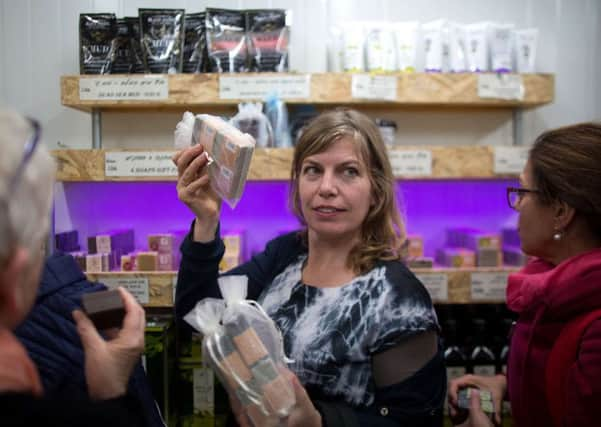EU-Israel relations ‘take a dive’ over labelling


The Israeli foreign ministry said the EU has taken an “exceptional and discriminatory step” for “political reasons”, while Prime Minister Benjamin Netanyahu said that the EU should be “ashamed”, and accused the bloc of punishing “the side that is being attacked by terrorism”.
The EU move, which came after months of procrastinating, underscores the bloc’s unhappiness over Israel’s continued expansion of settlements on territory that Palestinians seek for their future state.
Advertisement
Hide AdAdvertisement
Hide AdThe 28-member union is now seeking to differentiate between its relations with Israel and with the settlements, fearing that a continued status quo would never push the Israeli government into changing its settlement policies.
Once the labelling is implemented, European consumers will be able to read on the label of most products if a piece of merchandise or goods - mostly fruit and vegetables - was produced in the Jewish settlements.
Israel fears the labels will be a political stigma.
EU Commission vice-president Valdis Dombrovskis insisted that the measure was “a technical issue, not a political stance”.
He said the guidelines had to be taken after three member states - Britain, Belgium and Denmark - already had imposed special labelling on their own, forcing the EU to streamline measures throughout the 28 nations.
“The EU does not support in any form a boycott or sanctions against Israel,” Mr Dombrovskis said, insisting that Israeli products from within the internationally recognised borders still benefit from EU preferential tariff treatment.
However, Israel insists the step was inspired by an international boycott movement against Israel and noted that it comes at a time when the country is confronting a “wave of terrorism” amid stepped-up Palestinian attacks.
Palestinian president Mahmoud Abbas praised the EU’s decision.
He said: “I highly appreciate what the EU countries did on the products of the Israeli colonial settlements.”